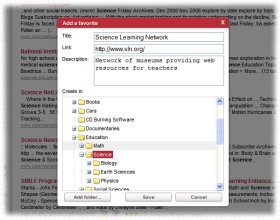|
Education
Web
Viewing 1-2 of 2 total results
and other images. 3. Students will locate major political and physical features of the United States and the world. 1. Atlases, online databases, topographic maps 2. Thematic, topographic, aerial photos, satellite images 3. Countries, rivers, topographic features, largest...
1
0
and other images. 3. Students will locate major political and physical features of the United States and the world. 1. Atlases, online databases, topographic maps 2. Thematic, topographic, aerial photos, satellite images 3. Countries, rivers, topographic features, largest cities GEOGRAPHY GRADES 9-12 Strand Sub-Strand Standards Benchmarks Examples V. GEOGRAPHY B. Essential Skills The student will use maps, globes, geographic information systems, and other databases to answer geographic questions at a variety
48
0
http://education.state.mn.us/mdeprod/groups/Standards/documents/LawStatute/006219.pdf#page=48
education.state.mn.us/mdeprod/groups/Standards/documents/LawStatute/00621...
Minnesota Department of Education May 15, 2004, 9:45 p.m. 48 V. GEOGRAPHY D. Interconnections The student will identify examples of the changing relationships between patterns of settlement, land use and <span class="highlight">topographic</span> features in the United States. 1. Students will analyze how changes in technology and political attitudes promoted development in various regions of the United States. 2. Students will analyze how changes in transportation affected settlement of the country. 1. Invention of the sod-breaking
50
0
http://education.state.mn.us/mdeprod/groups/Standards/documents/LawStatute/006219.pdf#page=50
education.state.mn.us/mdeprod/groups/Standards/documents/LawStatute/00621...
and other images. 3. Students will locate major political and physical features of the United States and the world. 1. Atlases, online databases, <span class="highlight">topographic</span> <span class="highlight">maps</span> 2. Thematic, <span class="highlight">topographic</span>, aerial photos, satellite images 3. Countries, rivers, <span class="highlight">topographic</span> features, largest cities GEOGRAPHY GRADES 9-12 Strand Sub-Strand Standards Benchmarks Examples V. GEOGRAPHY B. Essential Skills The student will use <span class="highlight">maps</span>, globes, geographic information systems, and other databases to answer geographic questions at a variety
and mathematical problems involving whole numbers. Use various strategies, including the relationship between addition and subtraction, the use of technology, and the context of the problem to assess the reasonableness of results. For example: The calculation 117 – 83 = 34 can be check...
1
0
and mathematical problems involving whole numbers. Use various strategies, including the relationship between addition and subtraction, the use of technology, and the context of the problem to assess the reasonableness of results. For example: The calculation 117 – 83 = 34 can be checked by adding 83 and 34. 3.1.2.3 Represent multiplication facts by using a variety of approaches, such as repeated addition, equal-sized groups, arrays, area models, equal jumps on a number line and skip counting
9
0
http://education.state.mn.us/mdeprod/groups/Standards/documents/LawStatute/035171.pdf#page=9
education.state.mn.us/mdeprod/groups/Standards/documents/LawStatute/03517...
and mathematical problems involving whole numbers. Use various strategies, including the relationship between addition and subtraction, the use of technology, and the context of the problem to assess the reasonableness of results. <span class="highlight">For</span> example: The calculation 117 – 83 = 34 can be checked by adding 83 and 34. 3.1.2.3 Represent multiplication facts by using a variety of approaches, such as repeated addition, equal-sized groups, arrays, area models, equal jumps on a number <span class="highlight">line</span> and skip counting
11
0
http://education.state.mn.us/mdeprod/groups/Standards/documents/LawStatute/035171.pdf#page=11
education.state.mn.us/mdeprod/groups/Standards/documents/LawStatute/03517...
perimeter as a measurable attribute of real- world and mathematical objects. Use various tools to measure distances. 3.3.2.3 Measure distances around objects. <span class="highlight">For</span> example: Measure the distance around a classroom, or measure a person's wrist size. 3.3.3.1 Tell time to the minute, using <span class="highlight">digital</span> and analog clocks. Determine elapsed time to the minute. <span class="highlight">For</span> example: Your trip began at 9:50 a.m. and ended at 3:10 p.m. How long were you traveling? 3.3.3.2 Know relationships among units of time
|
